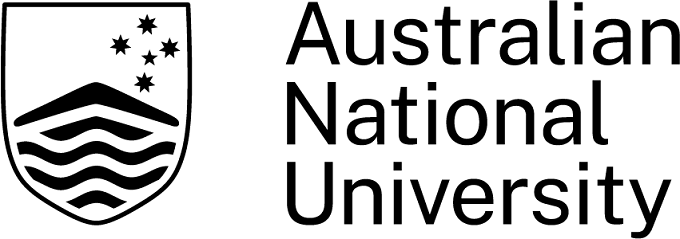From September to December 2017, Karan Dhamija spent his days at the United Nations General Assembly in New York.
There, Karan formed part of a team that negotiated with 193 member states on issues ranging from peacekeeping missions to funding for Cambodia’s international courts. On the side, he was reporting back to Canberra and Australian posts around the world on new developments from the Rohingya crisis in Myanmar.
These issues and the UN are rife with diplomatic and legal intricacies. But Karan took part in this amazing opportunity without decades of experience firmly under his belt.
He’s a political science and law student at the Australian National University’s College of Law (ANU Law) and an intern with the Australian Mission. Karan was selected to represent Australia on the committee during the General Assembly.

Source: ANU, College of Law
“While this was a non-ANU organised opportunity, I was only able to get this opportunity because of some of my previous experiences, a lot of which have been supported by the university,” the India-born student said.
Karan started out as a fresh-faced student at ANU Law. Today, his CV boasts a myriad of international experience, from his stint at the UN to spending time in Myanmar and Australia under other ANU-organised programmes.
Such enviable professional experience is part of the Australian National University’s long-standing reputation for academic excellence, cementing its place as a leader in legal education and research. After all, its list of alumni includes senior ministerial advisors, foreign diplomats and a judge of Australia’s High Court among its ranks.
Leading legal education for now and the future
At ANU, this excellence starts with a strong academic foundation. Recognition for its performance resounds across the globe. For 2018/19, ANU Law comes 2nd in Australia in both the QS World University and the Times Higher Education (THE) rankings, scoring highly in important indicators such as academic reputation, graduate outcomes, employer perspective, student-to-staff ratio, research output and internationalisation. Globally, they are ranked 12th in the world by QS.

Source: ANU, College of Law
The Law School is a big contributor to the Australian National University’s top rating of 5 in Excellence in Research Australia (ERA) for the Law and Legal Studies category – only a select few Australian universities display such an achievement.
Prospective law students will be happy to hear that ANU Law’s world-class undergraduate, postgraduate and higher degree research programmes are further complemented by diverse student initiatives.
Learners who effectively balance work with other personal commitments are offered flexible options, be it through the clustering of Master’s degree lectures over ‘intensive’ periods of 3-5 days, or by allowing Juris Doctor (JD) candidates to opt for online learning to suit their busy schedules.
From 2019 onwards, ANU is making changes to its Juris Doctor to make it more accessible to graduates of non-law-based disciplines in Australia and worldwide.
“We have done this by allowing students the option to study full-time or part-time as well as online or on-campus, and to make that decision differently each semester, based on their personal circumstances,” says Professor Sally Wheeler OBE, Dean of ANU Law.

Source: ANU, College of Law
“We are confident these changes will ensure that the National Law School continues to be at the forefront of Australia’s best legal education for some of the world’s best lawyers,” she adds.
Global outlook, local focus
From the UN’s European Headquarters in Geneva to Japanese law seminars in Kyoto, ANU Law students are open to a host of international experiences beyond the classroom.
The success of this emphasis on global outlook can be seen by ANU being rated top in Australia last year, for the fifth consecutive year in the THE Global University Employability Ranking.
ANU Vice-Chancellor said:
“Our global outlook at ANU means we attract some of the best and brightest students, who benefit from our smaller class sizes and our top-quality teachers.
“This all helps ensure ANU graduates are well prepared for the challenges of the modern workforce and ensures they are highly sought after by employers.”

Source: ANU, College of Law
On a more local level, mooting competitions, internships and exchanges are on offer for law students to obtain practical training to supplement theories learned in lecture halls or online.
Such options are worthy since the legal fraternity, global or otherwise, needs law graduates equipped with a better understanding of the world.
In ANU Law’s clinical courses, students engage with real clients, tackle real problems and juggle real deadlines, be it through legal assistance for youth or collaboration with the Indigenous Community Legal Clinic.
And what better place to gain further insight into this than in Canberra; Australia’s capital? A campus located at the seat of government gives ANU Law students prime views into how the creation, interpretation, application and enhancement of law in Australia and the world occurs.
When Hansika Chopra first chose to pursue a JD at ANU after obtaining her undergraduate degree from Delhi University, she and her family barely knew about Canberra. She credits her smooth transition to Australian life to the comforting experience of her early years at ANU’s Toad Hall, which housed an impressively high international student population.
“I think what makes Canberra really special, and ANU really special, is that the student community is where the life is at. Being part of the community really helps you settle and get comfortable and get around in Canberra and the ANU.”

Source: ANU, College of Law
Hansika is at the end of her JD studies now and plans to go back to India to practise law. Both the undergraduate ANU Bachelor of Laws (Honours) and the postgraduate Juris Doctor are recognised by the Bar Council of India.
She says she will now miss the bushwalking, cafes and great friends she’s made at ANU.
“A law degree changes you. You think differently. I didn’t expect to make friends for life. I was so happy to be wrong.”
An ANU Law representative will be in India in August to provide prospective students with information about ANU Law and its world-class programmes.
Follow ANU Law on Facebook, YouTube, Instagram and LinkedIn











